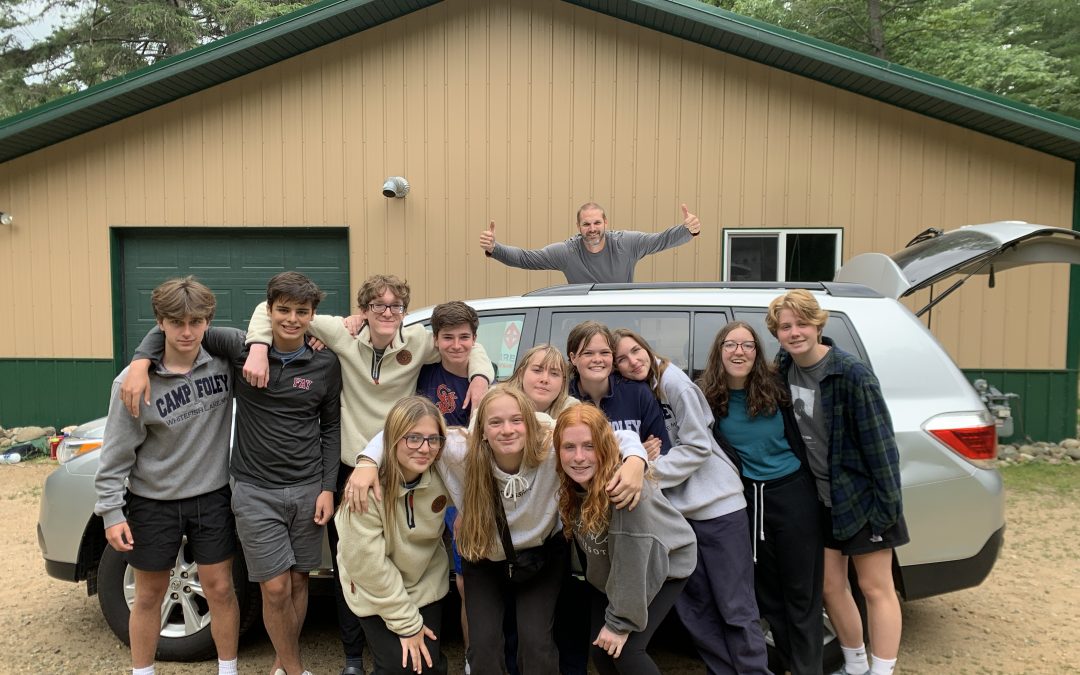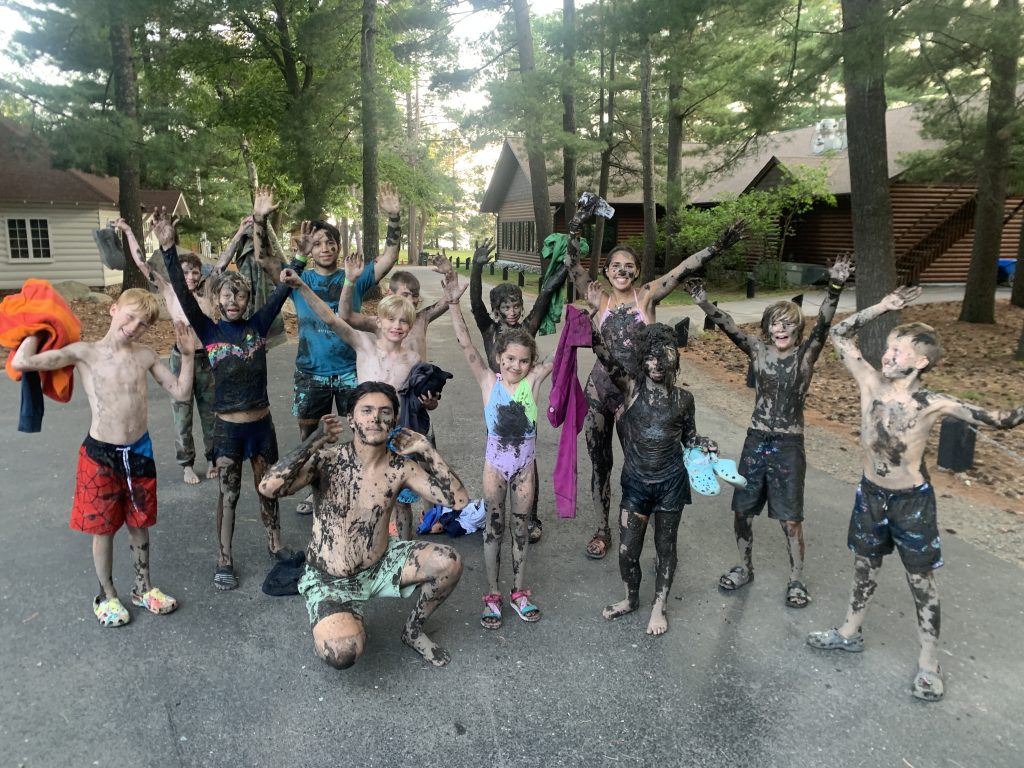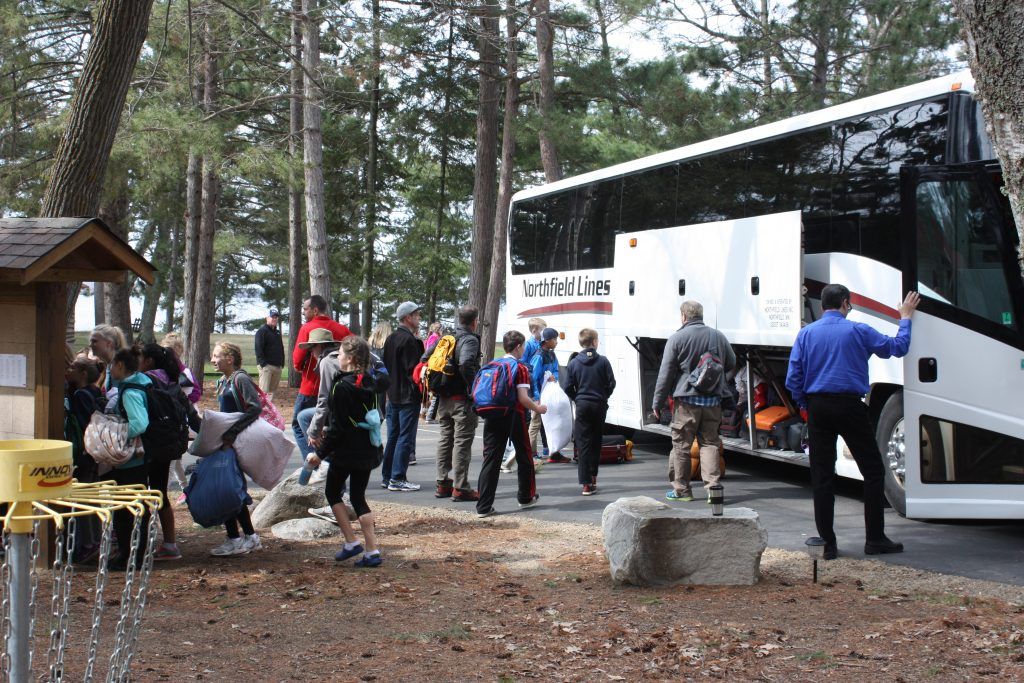As summer camp looms, parents grapple with a single question: How can I best prepare my teenager for their upcoming adventure? Fret not; this article offers a straightforward plan on how to prepare my teenager for summer camp. From choosing the right setting to instilling confidence and resilience, we provide actionable advice that respects both your teen’s independence and your peace of mind.
Key Takeaways
-
Evaluate your teen’s readiness for camp by discussing their interests, previous experiences, and ability to handle responsibilities, and ease them into the camp experience with day camps or sleepovers at friends’ homes.
-
Select the perfect camp through thorough research that aligns with your teen’s interests, checking for ACA accreditation, and considering the camp’s environment and accommodations, while involving your teen in the decision-making process.
-
Prepare your teenager with essential life skills, foster their independence and self-confidence, and emphasize the fun and enriching experiences of summer camp, while also addressing homesickness and how to cope with it.
Evaluating Teen’s Readiness for Summer Camp
Is your teenager ready for summer camp? It’s a question that might keep many parents awake at night. Evaluating your teen’s readiness for summer camp is a key step that typically begins with a clear understanding of their interests and previous experiences. If your teenager has a keen interest in new experiences and has managed personal responsibilities successfully in the past, they are likely ready for the exciting adventure that awaits at summer camp.
Discussing their interests and previous camp experiences can be a good starting point. If your teen has never attended camp before, consider starting with a day camp to ease them into the summer camp experience. To help them with separation, you can arrange sleepovers at friends’ or relatives’ homes and discuss any concerns to ease nerves. Remember, summer camps aren’t just about fun and games. They contribute significantly to the development of teenagers by enhancing their self-esteem and self-worth through the challenges of adolescence.
Wondering how to get your child ready for the camp? Start by aligning the summer camp options with your child’s interests. Whether it’s sports camps, an arts camp, or a science camp, there’s a multitude of options that cater to diverse interests.
Following that, take into account the environment of the camp. Some kids thrive in overnight camps, while others might prefer the shorter duration of day camps or an overnight camp experience.
Selecting the Perfect Summer Camp
Having assessed your teen’s readiness, your subsequent move is to handpick an ideal summer camp. But with so many camps to choose from, how do you make the right choice? The secret lies in thorough research and aligning the camp choices with your teen’s interests.
To ensure a safe and professional environment, select a camp that is ACA accredited, meeting over 300 standards related to health, safety, and program quality. Consider a camp that offers a range of activities tailored to your teen’s interests, such as sports, arts, and leadership opportunities. You can use the American Camp Association’s database to find camps that fit your child’s interests and check for ACA accreditation to validate the camps’ commitment to quality.
Lastly, consider the type of accommodation provided, such as cabins, tents, or tepees, as this can greatly influence your teenager’s camp experience and comfort.
Investigate Camp Choices
Wondering where to begin in exploring summer camp options? The good news is, you have a range of platforms at your disposal, both in-person and online. From local camp fairs to social media groups dedicated to camping, the resources are plentiful.
Attending camp fairs provides a valuable chance for you to:
-
Speak directly with representatives from various camps
-
Ask questions
-
Gather brochures
-
Get a feel for what different camps have to offer
It’s a great way to get a comprehensive overview of your options.
Don’t underestimate the power of digital platforms. Social media and online groups dedicated to camping can be a treasure trove of information. You can connect with other parents, share experiences, and gain valuable insights into different camps.
Many camps also have active social media profiles where they post updates and photos, giving you a glimpse into the day-to-day activities at camp.
Attend Open Houses and Meet Directors
Having explored an array of camp options, it’s time to delve deeper. Camp visits and attending open houses can give you and your teen an authentic feel for the camp atmosphere. It’s an opportunity to see the facilities firsthand, observe the staff-camper interaction, and get a sense of the camp culture.
Meeting one-on-one with a camp director is another crucial step in the selection process. It allows you to ask personalized questions and gauge whether you feel comfortable entrusting your child to the camp. You can inquire about:
-
the camp schedule
-
safety protocols
-
staff qualifications
-
anything else that’s on your mind
Visiting camps, attending open houses, and meeting directors might require a bit of time and effort, but it’s well worth it. These efforts help ensure that decisions about summer camp are well-informed and aligned with your teen’s interests and your expectations.
Involving Your Teen in the Decision-Making Process
In the journey of preparing your teenager for summer camp, their active involvement in the decision-making process can be a game-changer. It not only increases their enthusiasm and confidence but also prepares them for a more positive and successful camp experience.
Involving teenagers in selecting their summer camp can have several benefits:
-
It strengthens their belief in their own decision-making abilities.
-
It helps align the camp programs with the child’s interests and hobbies, making the experience more engaging and beneficial.
-
It promotes a sense of excitement for the upcoming camp experience.
Discussing various camp options with your teenager can help identify where their natural enthusiasm lies and ensure they have a positive and enjoyable camp experience. It’s important to talk to your child during this process to make the best decision together.
However, before involving your teenager in the final decision, it’s a good idea to narrow down the choices to a few confident options. This can ease the decision-making process and prevent it from becoming overwhelming.
Building Essential Life Skills Before Camp
Alongside selecting the ideal camp and involving your teen in the decision process, equipping your teenager with crucial life skills before they embark on their camp journey is of equal importance. These skills will not only make their camp experience smoother but will also serve them well in life.
Personal hygiene is one such essential skill. Teach your teenager about basic first aid, the importance of regular handwashing, dental care, and seeking assistance when necessary. Organization skills are equally important. Teach them how to manage their tasks, schedules, and belongings. This could involve anything from packing their bags to managing their daily schedule at camp.
Developing a problem-solving mindset is another key skill. Encourage your teenager to view challenges as opportunities for learning rather than obstacles. Finally, foster independence in your teenager by including them in chores, letting them pack their bags for camp, and having them spend time away at a friend’s house. This will prepare them for the independent experience that awaits at summer camp.
Fostering Independence and Self-Confidence
Summer camp presents an excellent opportunity to nurture independence and self-confidence in teenagers. The camp environment, filled with new experiences and challenges, helps teens step out of their comfort zone and discover their potential.
Entrusting home responsibilities to teenagers is a great way to foster independence. It prepares them for the challenges and opportunities they will encounter at summer camp. Additionally, promoting independent problem-solving before camp empowers teenagers to handle situations confidently on their own, enhancing their summer camp experience.
Summer camp also plays a significant role in boosting your teenager’s confidence. As they acquire proficiency in new skills and learn to surmount various challenges, they develop a sense of self-confidence and self-worth. Additionally, decision-making skills, nurtured at summer camp, play a significant role in teenagers’ personal growth, independence, and the development of social skills.
Communicating with Camp Staff
In the process of getting your teenager ready for summer camp, establishing transparent communication with the camp staff, including the camp nurse, is a key aspect. This ensures that the staff is well-informed about your teen’s needs and can provide the best possible care and support.
Start by scheduling a physical for your teenager and ensure that all health forms are completed and up-to-date. Communicate any special considerations, allergies, medications, or specific needs of your teenager to the camp staff beforehand. Completing and reviewing all necessary forms as required by the camp will help you stay informed about the camp’s policies and procedures.
Lastly, attend open houses or camp-facilitated events to meet with camp counselors and other camp staff. This not only allows you to discuss any concerns but also helps your teenager feel more comfortable and connected to the camp community before they attend camp.
Packing for Camp Together
The act of packing for summer camp can spark excitement, stirring up anticipation for the looming adventure. But it’s not just about stuffing a suitcase with clothes and gear. It’s an opportunity to teach responsibility and ensure your teenager has all they need for a successful camp experience.
Packing together for camp fosters teenagers’ sense of responsibility and ensures they know what essentials they’re bringing, including their child’s belongings. Essentials like sunscreen, a water bottle, and personal toiletries should be selected carefully, labeled with the teen’s name or initials to prevent confusion, and chosen based on prior use to ensure comfort. Deciding on appropriate luggage, such as a duffel bag or trunk, is influenced by how easily it can be transported on arrival day, as well as a sleeping bag for warmth, and a drawstring bag for daily carry essentials.
Early preparation is key. Familiarize yourself with the provided packing list several weeks before camp to ensure that all necessary items are included and reduces the chances of forgetting something important.
Remember, packing isn’t just a task, it’s part of the camp experience, and doing it together can be a fun and bonding activity.
Emphasizing the Fun Aspects of Summer Camp
Now, it’s time to delve into the most exhilarating aspect of summer camp – the fun it offers! Summer camps are filled with thrilling activities, new experiences, and the opportunity to make lifelong friends. Highlighting these fun aspects could make your teenager look forward to summer camp, helping them focus on the fun ahead.
Summer camps offer a wide array of activities such as:
-
Archery
-
LARPing
-
Ninja Warrior courses
-
Camp talent shows
-
Woodworking
-
Jewelry making at the Beadery
-
Constructing bird feeders
-
Tie-dying shirts
-
Storytelling
-
Camp Olympics
-
Trivia games
-
Field day events
-
Junkyard Wars
-
Myth Busters activities
-
Alka Seltzer rockets
Not only do these activities provide entertainment, but they also foster social connections, teamwork, and the confidence to explore new skills in a supportive camp environment.
So, whether it’s immersing in a game of archery, constructing a bird feeder, or crafting a piece of jewelry, there’s no end to the fun and learning at summer camp. By emphasizing these fun and beneficial aspects, you can maximize your teenager’s excitement and enhance their anticipation for the enriching experiences that await at summer camp.
Tips for Coping with Homesickness
Despite all the fun and thrill, summer camp might also induce feelings of homesickness, particularly among first-time campers. It’s a common issue, and with some preparation, you can help your teenager cope with it effectively.
Begin by discussing homesickness openly with your teen before camp starts. Reassure them about the normalcy of these feelings and emphasize the camp’s supportive staff. Teach them coping strategies such as focusing on the fun activities at camp, bringing comforting items, and reflecting positively on past challenging experiences.
Encourage your teen to talk to a trusted adult at camp if they’re feeling homesick. Help them stay busy by connecting with a ‘camp sister’ and focusing on the fun activities at camp. If severe homesickness occurs, affecting their ability to eat or sleep, it’s necessary to consider allowing them to come home, while framing it positively and encouraging them to try again in the future.
Preparing for Camp Departure
With the departure day nearing, it’s time to gear up for the final preparations. Review strengths and concerns with your teenager and ensure they have realistic expectations about summer camp, especially if it’s a sleepaway camp. This can help prepare them emotionally for the experience ahead, as well as for the upcoming school year.
Packing, as discussed earlier, should be a joint activity to teach responsibility and guarantee that your teenager has all they need for a successful camp experience. Apart from packing, consider facilitating a connection with another camper’s family. This can build a support network and add to the sense of excitement for both parents and teens.
Remember, preparing for camp departure is not just about packing the right things. It’s about:
-
Setting the right expectations
-
Building connections
-
Ensuring your teenager is mentally and emotionally ready for the enriching experience that awaits in the camp setting at summer camp.
Summary
Preparing your teenager for summer camp might seem like a daunting task, but with the right approach, it can be a rewarding journey for both of you. From assessing your teen’s readiness, selecting the perfect camp, and building essential life skills, to managing homesickness, each step offers opportunities for growth and learning.
Remember, summer camp is more than just a fleeting experience. It’s a platform for your teenager to explore their interests, build friendships, learn life skills, and create lasting memories. So, as you embark on this journey of preparation, remember that you’re not just preparing your teenager for a summer camp. You’re preparing them for life.



